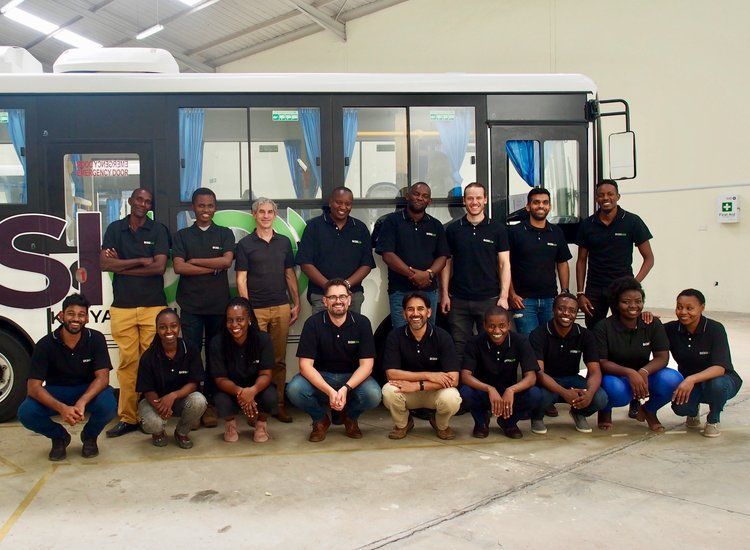BasiGo gets $4.3 million to enable the adoption of electric vehicles in Kenya
Three months after its launch, BasiGo, a Kenya-based electric vehicle (EV) startup has closed $4.3 million in seed funding to accelerate clean-energy mass transit vehicles in Kenya.

Three months after its launch, BasiGo, a Kenya-based electric vehicle (EV) startup has closed $4.3 million in seed funding to accelerate clean-energy mass transit vehicles in Kenya.
The round close which includes a $930,000 raised during the pre-seed round late last year was led by Novastar Ventures with participation from a number of existing and new Silicon Valley investors, including Moxxie Ventures, Nimble Partners, Spring Ventures, Climate Capital and Third Derivative.
With this new investment, BasiGo will establish an EV assembly plant in Nairobi and to launch the sales and delivery of its electric buses. BasiGo will locally assemble its EV buses – which will come in 25 and 36-seater capacities, with a range of about 250 kilometers – using parts sourced from China’s EV maker BYD Automotive.
Currently, the startup has a charging and servicing depot at the Kenya's Jomo Kenyatta International Airport.
The EV-focused startup plans to supply over 1,000 mass transit electric buses to transport operators in Nairobi over the next five years. To encourage the uptake of these vehicles, the startup will extend pay-as-you-drive credit options to drivers, and provide maintenance and charging services.
BasiGo's co-founder and CEO, Jit Bhattacharya said that, "with East Africa’s abundant renewable energy, this market can leapfrog to clean, modern electric transit at the exact moment that African cities emerge as the next center of economic growth. The support and knowledge of this investor group will catalyze BasiGo in its mission to make East Africa a leader in inclusive, sustainable bus transport"
Petroleum is Kenya’s major source of commercial energy and has, over the years, accounted for about 80% of the country’s commercial energy requirements — this reflects the large dependence on fossil fuel for mobility: It is estimated that there are about 20,000 fossil-fuel vehicles ferrying commuters across Nairobi, making the public transport service sector one of the main contributors of air pollution in the city.
However, The Kenyan Wall Street reported that the Kenyan government plans on having at least 5% of all registered vehicles in the market being electric by the year 2025 to mitigate climate change as part of the Paris Agreement.
Recently, the Kenyan government announced that its Bus Rapid Transit (BRT) network, a bus-based public transport system in Nairobi, which is due for completion this year, will only be operated by green (electric, hybrid and biodiesel) vehicles, presenting a great business opportunity for EV manufacturers like Opibus and assemblers like BasiGo. Opibus has over the last five years been in the business of converting gasoline and diesel vehicles to electric but is now going into the production of new vehicles in addition to e-motorcycles.
"We are thrilled to be partnering with Novastar, Moxxie, and this incredible group of investors, all of whom are deeply experienced in rapidly scaling businesses in this market. They understand this extraordinary moment of opportunity and urgency as time runs out for the world to make a meaningful impact on climate emissions", Bhattacharya
Prior to starting BasiGo, Bhattacharya has been a technology leader in rechargeable (lithium-ion) batteries for more than 12 years — He was the CEO of Missiion Motors in Silicon Valley as well as senior manager for Project Titan, an electric car project by Apple Inc.
"We are excited to partner with BasiGo and support the team’s audacious vision to transform the public bus transport sector in Africa. Our investment will accelerate the adoption of electric buses through an innovative finance model, leading to a vastly improved experience for commuters as well as better air quality in dense urban neighborhoods", Novastar Ventures partner, Sapna Shah said.
In March, the EV-focused startup will join Swedish-Kenyan EV startup Opibus, whose inaugural locally-manufactured electric bus hit Kenya’s roads three weeks ago. Both companies have set their eyes on the mass transit sector, which is slowly shifting to clean-energy options.






